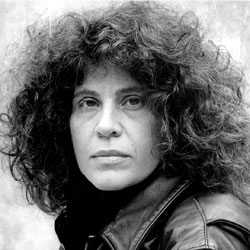The same question endlessly repeated,
fingers grasping the same crumbling edge,
one of the first signs of illness
never allowing a lesion to form.
How to cope financially, how to make
nothing into something. When I was still a child
you asked my brothers and I to sit with you
at the table; I implore you,
it is all I ask: do what you love, only
choose work you love, no matter what it is.
Not like me, making nothing
out if nothing. Though at least you came out ahead
on one side of the ledger, the side of love dark
with pencil marks, the black of my mother’s hair
as she sat in the row ahead at the concert hall
the night you met. Unlike me, with both
blank pages. How are you coping, you asked,
over and over, financially.
The dreaded endless question born of worry and
helplessness. At least, I always joked, when
you have nothing, nothing can be taken from you,
but we both knew that was bad math, that there was
always something to be taken from you,
not lost, but taken. And so that was the one question
on which you alighted, in the last months
before that decade of silence,
an endless painful longing to rescue,
the repetition of the plough horse,
majestic head bent to earth,
turning the same direction
at the end of each row.
Notes on the Poem
The frustration inherent in an "endlessly repeated" question, the looming threat of serious illness, the tiresome fretting over numbers and dollars ... What alchemy does Anne Michaels use to take fragments of sad and dreary things and change them into something accessible, comforting, even ultimately noble? The warmth of spoken words - even if the words are spoken plaintively or tinged with despair - helps. Interestingly, italicizing her father's words rather than demarcating them with quotation marks seems to blend them more intimately with the thoughts and memories of the narration here. Levity, however understated and wry, helps too: "At least, I always joked, when you have nothing, nothing can be taken from you" Finally, the symbols of tedium are transformed, first into images of love - marks in a ledger reminiscent of the dark hair of a loved one - and then into images of nobility and perseverance, as the repetition of numbers and pleas and worries becomes: "the repetition of the plough horse, majestic head bent to earth, turning the same direction at the end of each row."
